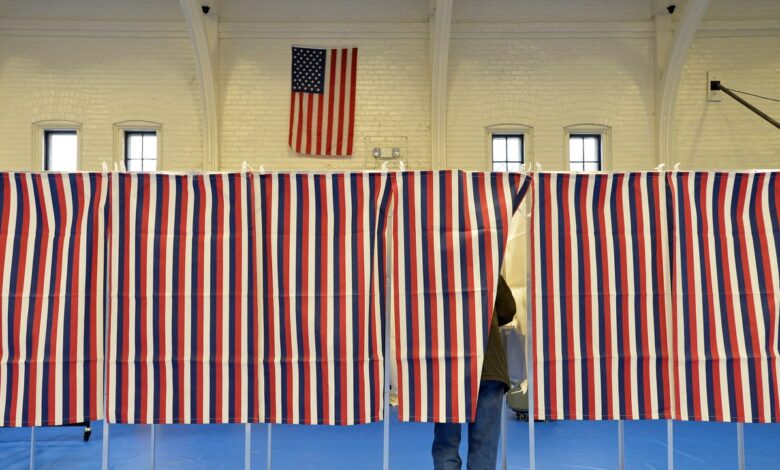The 2024 election is the closest presidential race in at least 60 years: Polls

The 2024 presidential election cycle will be the first in at least 60 years that no candidate has led by 5 points or more in polls for more than three weeks, according to a Analysis via Harry EntenThat margin has existed in every campaign since 1964, Enten explained, except this one—even when President Joe Biden still running
“The race is as close as I’ve ever seen it,” Enten wrote on X. “The bottom line is this election is in two months.”
Some national and battleground state polls show Vice president Kamala Harris and former president Donald Trump either equal or within a few percent of each other—the results appear to be well within the margin of error.
Pollsters in this election have had a particularly chaotic campaign to track. From Biden Stressful debate performance next june failed assassination Trump in July, followed by Biden bow out of the race and Harris energized and accelerated During the summer campaign, it felt like every week there was an unprecedented event for Americans to consider.
Additionally, according to the Pew Research Center reportTrump’s presence on the ballot could negatively impact the reliability of polling. “Compared to other elections over the past 20 years, polls are less accurate when Donald Trump is on the ballot,” Pew vice president Courtney Kennedy and senior survey advisor Scott Keeter wrote.
This discrepancy, they found, could be due to two reasons. First, pollsters often use past turnout to predict who will vote in upcoming races, and “research has found that Trump is popular with people who tend not to vote in midterms but do vote for him in presidential election years.” Second, Kennedy and Keeter note, “Republicans in the Trump era are slightly less likely to participate in polls than Democrats.”
In addition to documenting a historically close race, pollsters are tracking what issues are driving voter turnout this year.
An Economist August/YouGov poll Among 1,567 adults in the US, “Inflation/prices” was the top issue voters were concerned about, at 24%, followed by “Jobs and the economy” at 13% and “Immigration” at 12%.
One set New York Times/Siena College poll among registered voters in seven battleground states conducted from August 6 to 15 found that “For women under 45, abortion has surpassed the economy to become the most important issue for their vote.”
Throughout the 2024 campaign cycle, one thing has remained clear: this election could be decided by just a few key battleground states.
Democratic voters in Omaha, Nebraska placed signs in their yards with a single letter green dotsymbol of Harris’ potential strength in a red state. Nebraska is one of only two states that awards electoral votes based on congressional districts, rather than statewide winners.
“For all the paths for Harris and Trump to the White House,” CNN Jeff Zeleny “The race for 270 electoral votes could be fought in Nebraska’s sprawling 2nd District, which includes Omaha and parts of two neighboring counties and has many similarities to suburbs across the country,” writes the New York Times.
On top of the Omaha green dot, the final score in seven states—Michigan, Wisconsin, Pennsylvania, North Carolina, Georgia, Arizona and Nevada—could help Trump or Harris reach the 270 votes needed to win.
In the event of an Electoral College tie, a constitutional mechanism that has been in place for centuries maybe ultimately decide the election. If both Harris and Trump win 269 electoral votes, the House of Representatives will decide the election, under the 12th Amendment—something that hasn’t happened since 1824.
If sent to the House, each state delegation would be allotted one vote. Currently, Republicans control 26 House delegations; Democrats control 22, and two others are tied. That means Trump could lose the popular vote—as he did in his two previous executive bids—and tie in the general election, and still win the White House.
A close election could exacerbate widespread right-wing theories of voter fraud—and risk reigniting Trump’s Big Lie of 2020, the baseless claim that the election was stolen from Biden.



